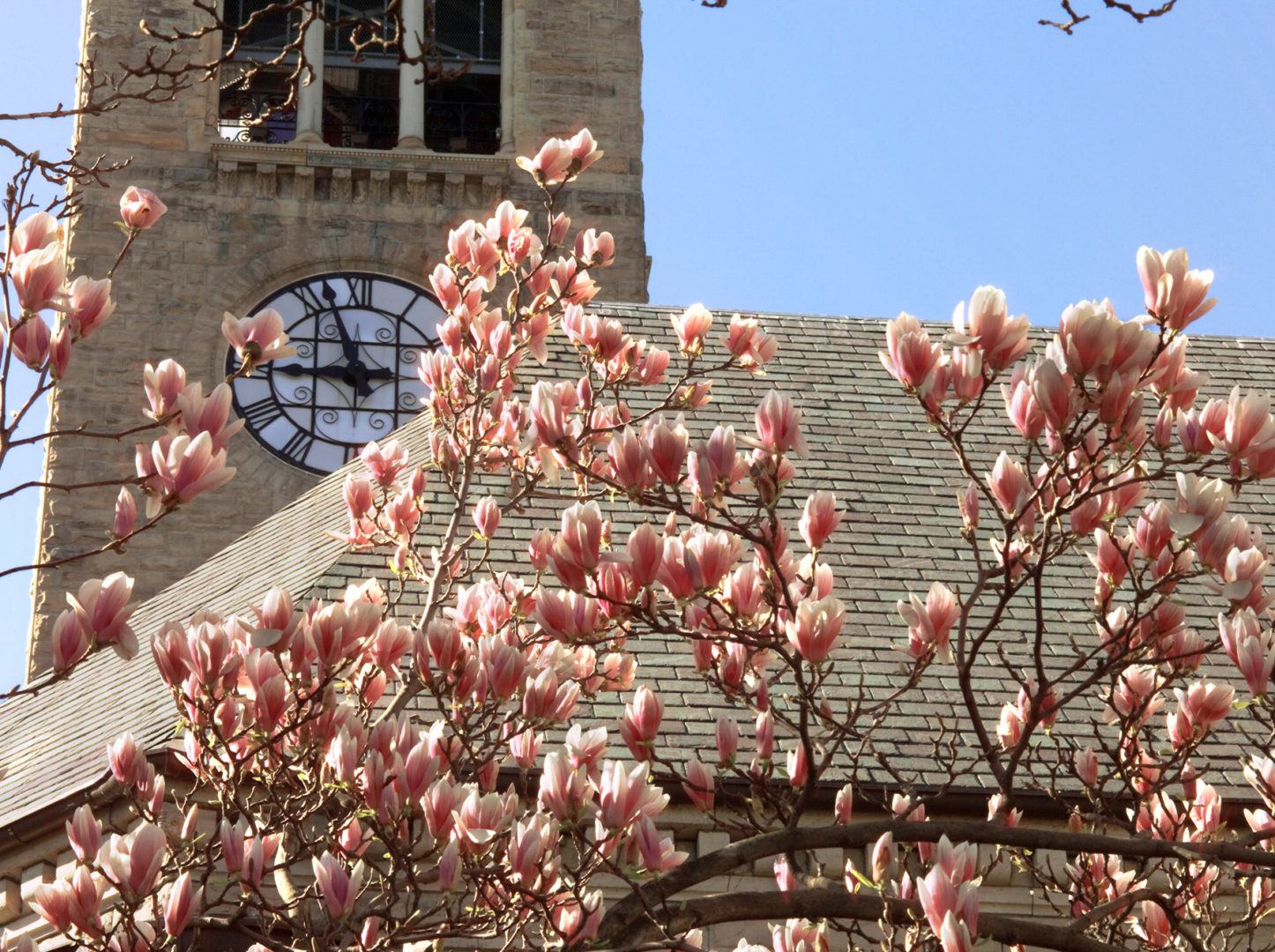Nicole Svonavec is a new face at Alumni Affairs and Development (AAD). Svonavec was hired in September 2019 as director of student and young alumni programs (SYAP). She leads a team of three colleagues—Mandy Bennison MMH ’18, Cait Collins, and Amanda Massa—whose goal is to inspire current students and recent graduates to connect with Cornell’s alumni network.
The start of alumni life
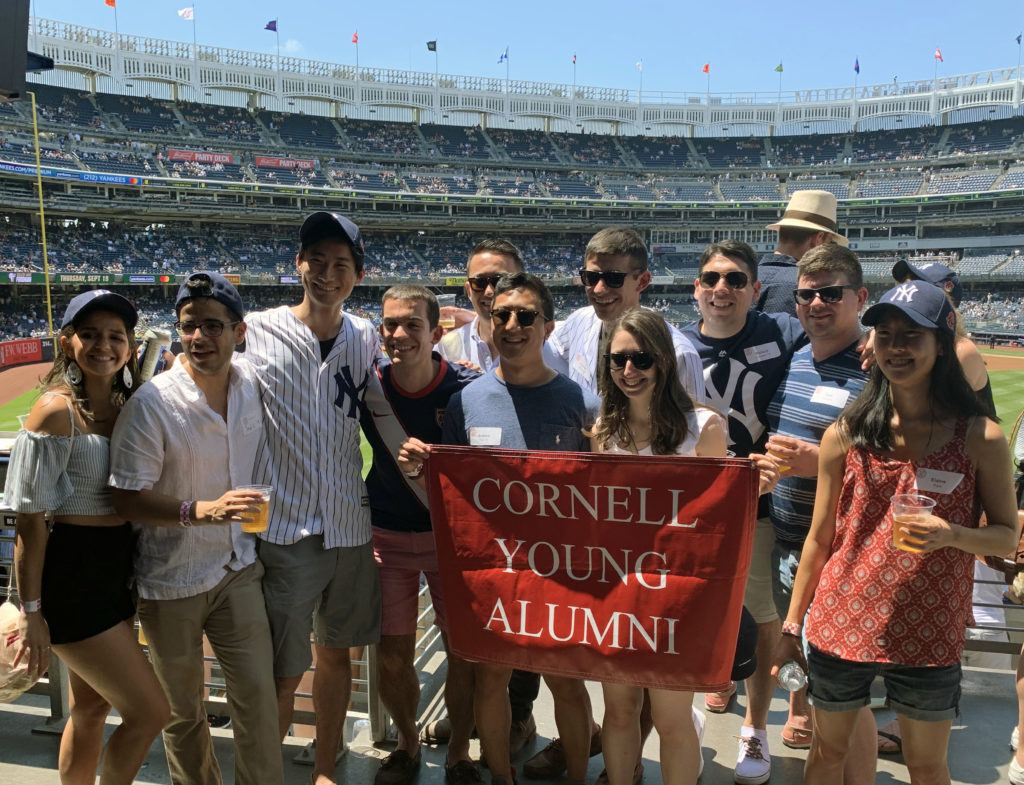
The gifts of alumnihood include tapping into the vast Cornell professional network, celebrating Cornell memories and traditions, and being part of an institution that is dedicated to improving lives and advancing knowledge in communities around the world.
According to Svonavec, about one in five alumni are young or recent alumni—defined as those who are zero to ten years from their undergraduate graduation. The SYAP team oversees efforts to engage more students and young alumni and lay a foundation for a lifetime of engagement with Cornell.
Inspiring more students to embrace the alumni network and increasing young alumni engagement are key priorities of the Cornell Alumni Engagement Strategic Plan. The strategic plan was rolled out in 2019 by Michelle Vaeth ’98, associate vice president of alumni affairs, and is intended to foster the long-term vitality of the university by engaging its alumni population.
A two-way street
“Everyone wants to tap into the Cornell career network,” says Svonavec, “but our young alumni don’t just want a one-way street. They want to give back.”
Svonavec explains that alumni who are a few years post-graduation want to share their experiences and insights with students and new graduates. She says that there is a mutual benefit here: as graduates enter the job market, they naturally look to early or mid-career alumni for advice. “Our new graduates want to understand the middle,” she says. “They see our trustees at the pinnacle of their professional lives, and they want a roadmap of how to get there.”
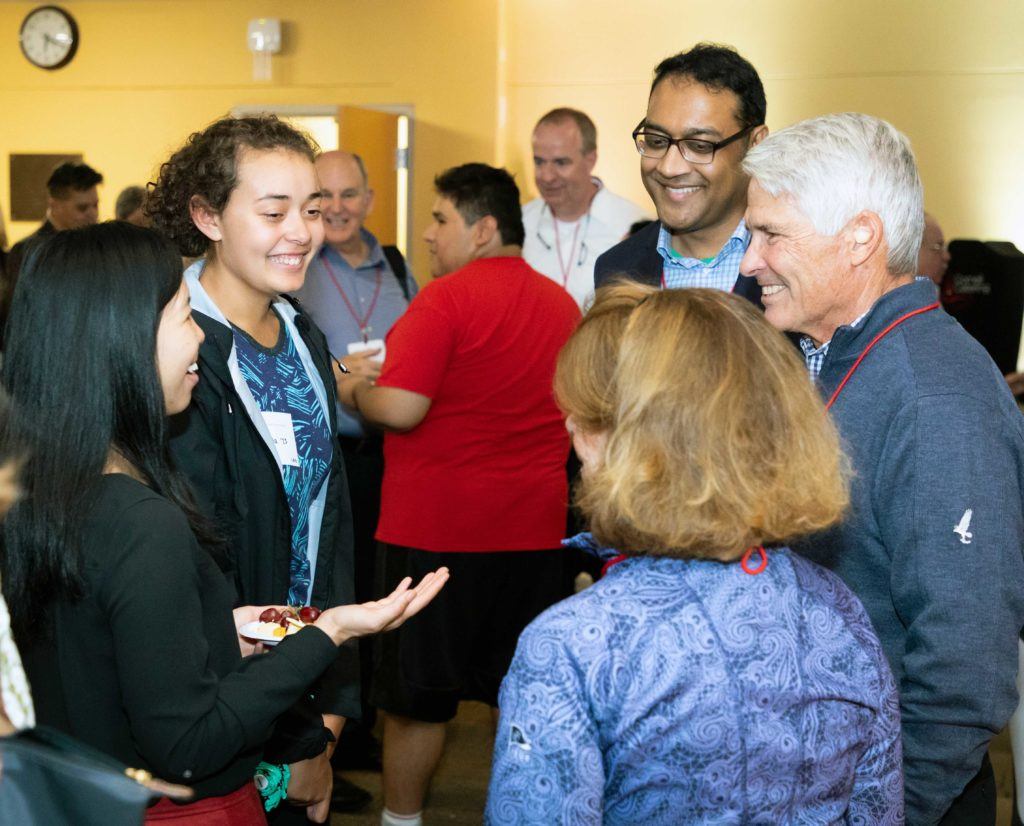
“We want our alumni out in the world to take the call,” she says. “We need to show the power of the Cornell connection, both for those seeking professional advice and for those who want to provide guidance to students and alumni peers.”
She points at CUeLINKS as a great way to connect students and alumni. Svonavec hopes the platform will expand in the near future to facilitate alumni-to-alumni connections.
According to Svonavec, career advising is just one of a wide-ranging set of reasons why students and young alumni want to stay connected to Cornell. In addition to understanding the career needs of this group, she hopes to provide lifelong value to these new Cornellians.
A focus on fellowship and fun
The SYAP team is listening to and learning from students and young alumni across a broad spectrum, in order to let their passions and culture inform AAD’s work.
A top priority is to ensure that students and young alumni are a vital part of Cornell celebrations. For example, Svonavec and Massa will host a live event on Giving Day 2020 in NYC. “This will involve bullhorns and a festive countdown to midnight,” says Svonavec. Her goal is to show young alumni that their contributions really do make a difference.
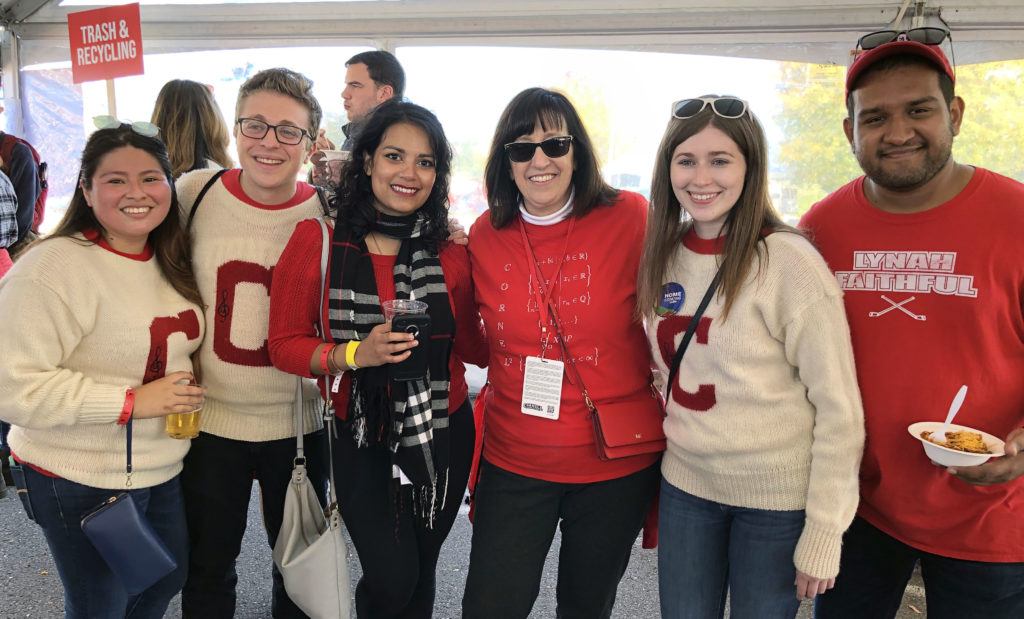
Svonavec is also finalizing best practices for offering considerate pricing to students and young alumni at events such as the Cornell Alumni Leadership Conference. “Providing discounted young alumni pricing makes these events more accessible,” she explains.
Svonavec and her team are reviewing existing AAD events with an eye to the student and young alumni experience. The team is currently looking at Homecoming, hoping to make the experience as amazing for students as it has become for alumni.
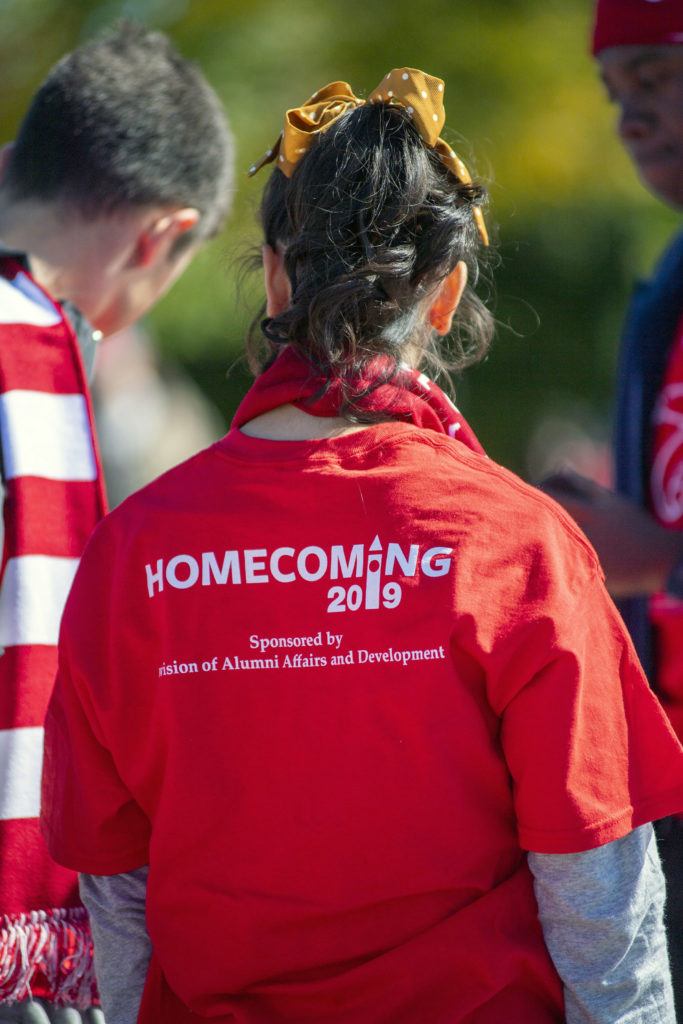
In November 2019, Svonavec and Collins met with a group of about 25 student ambassadors to listen to their suggestions about what would make Homecoming a must-go event for all students.
The ambassadors suggested adding food, music, and activities during which students can interact with alumni. Students want to “get to know their Cornell stories,” Svonavec says. “They want to understand what alumni do and why they keep coming back to Cornell—and they want to have fun.”
Students also want to preserve and promote the innate inclusivity of all-alumni events. Many clubs on campus involve rigorous applications and auditions, but alumni traditions welcome all.
A long-term investment in Cornell
Svonavec is working with partners across campus to identify opportunities to improve and augment programming for students and young alumni. This includes partnering closely with other alumni affairs programming staff, including in the Office of Volunteer Programs, Reunion, and Homecoming.
From revamping the training of students who work at Reunion, to reimagining the student networking event at the Trustee-Council Annual Meeting, Svonavec and her team are working to make alumni events more student-friendly. They hope the student ambassadors will inform ways to make these events more appealing to students.
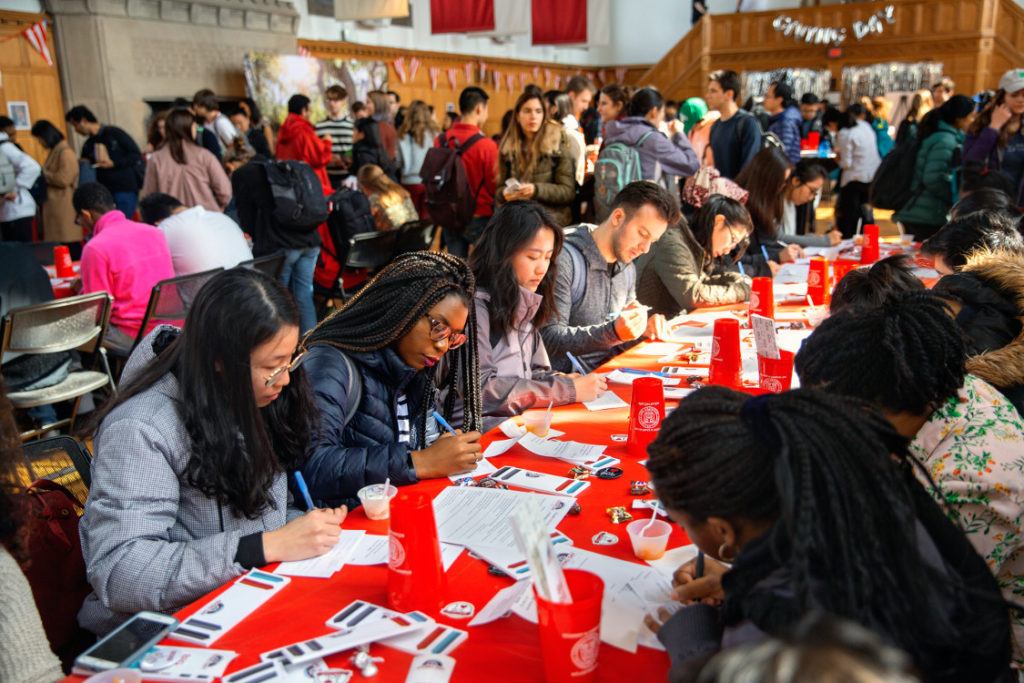
“We are trying to improve the quality of our engagement,” she says, “to deliver meaningful experiences to our audience.” With a cohort that includes undergraduate Cornellians from their first moments on campus through ten years after graduation, this is a tall order. Svonavec takes it all in stride.
“We need to provide the opportunities we know students and young alumni want,” she says. This means inviting them to celebrate Cornell’s most beloved traditions, like Homecoming and Reunion. It means communicating the learning and networking opportunities that are available where alumni live. And it means showing new Cornellians the continued value of investing in a Cornell education.
“We understand that the work we do now will make a difference in the way Cornellians connect and give back in the future,” says Svonavec.
Welcome, Nicole
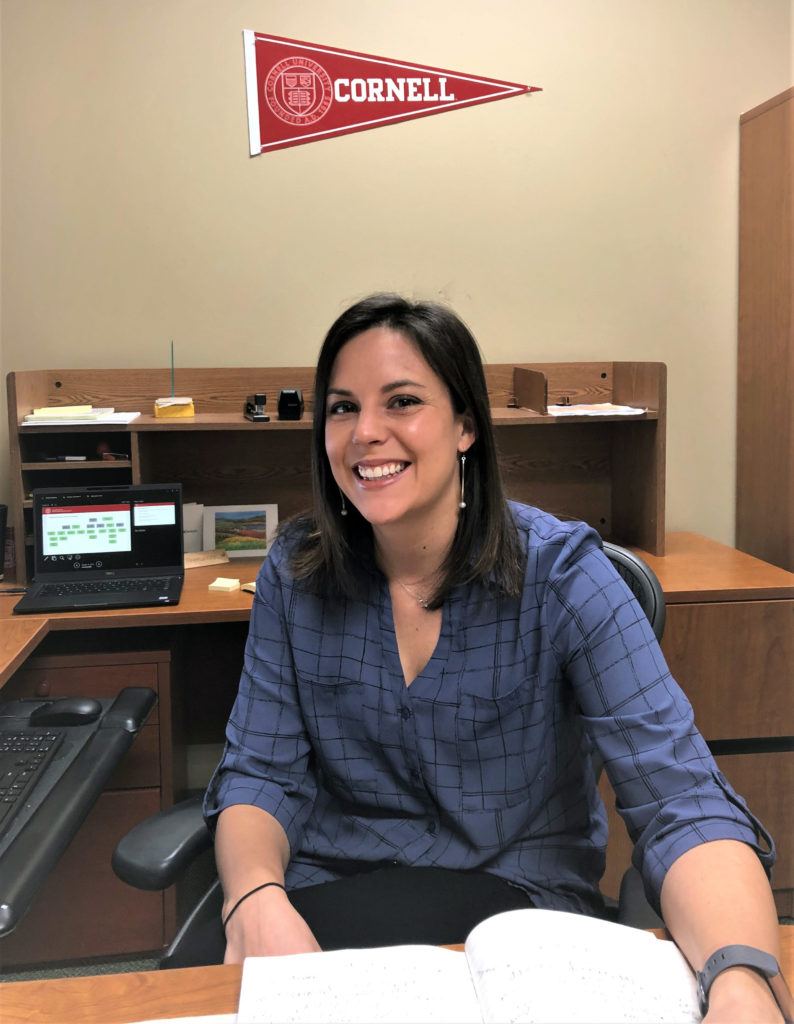
Nicole Svonavec grew up on a dairy farm in Southwestern Pennsylvania. She loves working at Cornell—“a school that is doing so much good to help the world at large, and especially rural communities like where I grew up.” She attended Syracuse University, where she studied Public Relations. She then moved to South Carolina to work as a Residence Hall Director at Coastal Carolina University. “This job changed me as a person,” she says. “I helped students find resources to resolve roommate conflicts, work through eating disorders and past traumas, and find their academic paths. It was incredibly humbling to see what many students had to overcome to even get to college.”
Svonavec went on to earn master’s degree in Higher Education from the University of Pennsylvania. After graduation, she stayed at Penn for the next decade, working with students and young alumni. “I love working with this population—helping them engage, find purpose, and get the resources they need to achieve their goals,” she says. “When the position at Cornell opened to do similar work by leading a team of three amazing colleagues, it seemed like the perfect next step.”
“I’d love to connect to meet more great Cornell people,” she says. “Email me at ngs49@cornell.edu or find me on LinkedIn!”

